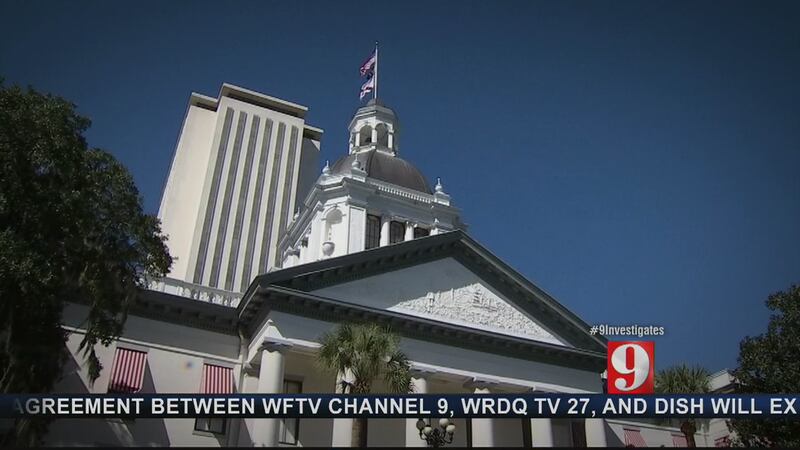TALLAHASSEE, Fla. — Almost 2 million Floridians can’t vote, and state leaders are in no rush to change that.
When a person is convicted of a felony, they lose many of their civil rights, including the right to vote. After serving their time, they can apply to have their rights restored, but Florida has all but eliminated the restoration of rights since Gov. Rick Scott took office.
9 Investigates compared Scott's record to that of former Gov. Jeb Bush during the first four years he was in office, as well as to the four years that former Gov. Charlie Crist was in office, and discovered a significant change in the number of felons who got their rights back after serving their time.
According to state records, Bush restored the rights of 72,000 felons in his last four years in office. Crist, who instated the automatic restoration of civil rights for nonviolent offenders, restored the rights of 155,000 felons; Scott revoked the automatic restoration of rights.
Scott and the Florida Clemency Board--comprised of Attorney General Pam Bondi, CFO Jeff Atwater, and Agriculture Commissioner Adam Putnam--restored the rights of just 1,550 people in Scott’s first term in office.
“To think that Florida is barring almost 2 million American citizens from voting is a travesty, it’s undemocratic,” says convicted felon Desmond Meade.
In 2001, Desmond served time for fraud and possession of cocaine. He also served time for possession of a firearm by a convicted felon. Since his release, Desmond has gone back to school and earned his law degree. But he can’t vote, even for his wife, who is currently running for the Florida Legislature.
“It is frustrating, but it also empowers my fight,” says Desmond'd wife, District 46 candidate Sheena Meade. “Many of the people I have met in this district can’t vote either.”
New York University’s Brennan Center for Justice found that the issue of restoration of rights disproportionately impacts minority communities, noting that “across the country, 13 percent of African-American men have lost their right to vote, which is seven times the national average.”
Florida, Iowa and Kentucky are the only states in which rights are permanently removed unless restored on an individual basis by a board or commission. In many states, including Texas, Georgia, and New Jersey, rights for felons are restored after completion of their sentence, parole, and/or probation. Meanwhile in other states, like Ohio, Utah, and Indiana, rights are restored automatically after release from prison.
Gov. Scott was dismissive about his record of rights restoration when interviewed by 9 Investigates.
“We try to make sure people have the opportunity to vote, but let’s follow the law and make sure when people get out they become a member of society first,” said Scott, who added that Florida has “plenty of voter turnout”.
Under current rules in Florida, felons must wait five years after they complete their sentence before they can apply for restoration of rights. If a felon is arrested for another crime, including misdemeanors, during that five-year period, the clock resets--even if the charges are dropped.
“It’s disheartening that my wife is running, and I can’t even vote for her,” says Desmond.
Cox Media Group






